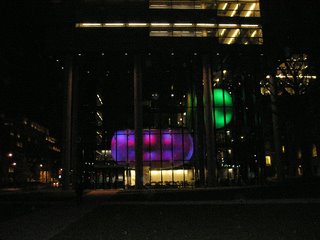
The Macleans annual issue on
ranking universities is now on the newsstands. The new rankings have the University of Toronto at #3 behind McGill and Queen's. Toronto was #1 for the past 12 years.
This year the rankings are controversial because 26 universities, including the University of Toronto, refused to cooperate with Macleans. Other major universities that joined with Toronto are:
Queen's University (#2)
University of British Columbia (#4),
University of Western Ontario (#5)
University of Alberta (#6)
Université de Montréal (#7)
University of Ottawa (#8)
McMaster University (#12)
University of Calgary (#13)
Dalhousie University (#14)
University of Manitoba (#15)
Last summer, these schools declared that they would not cooperate. They cited
problems with the methodology and claimed that the rankings were unfair. President David Naylor of the University of Toronto also noted that responding to the Macleans questionaire was time-consuming because it required compiling data in a different format than what the university normally does. Professor Naylor wondered why a public university should be devoting so much time and effort to helping a for-profit company.
I was waiting for Macleans to hit the newsstands before blogging about this because I was hoping that the University of Toronto would still be #1 and I could complain about the rankings without making it look like sour grapes. Oh well, at least my university is on record as objecting to the unfairness of the rankings when it was still in first place.
The main problem seems to be the huge emphasis on things over which universites have very little control. The importance of student surveys, and surveys of the business community are also causes for concern. Read David Naylor's report,
University Report Cards, Ratings, Rankings, and Performance Measures, for a serious discussion about the flaws in rankings such as Macleans.
 This is the new Leslie L. Dan Pharmacy Building at the University of Toronto. It's right next to where I work so I pass it every day. I think the building is quite unattractive during the day but the nighttime view is spectacular. I took this photo last night.
This is the new Leslie L. Dan Pharmacy Building at the University of Toronto. It's right next to where I work so I pass it every day. I think the building is quite unattractive during the day but the nighttime view is spectacular. I took this photo last night.